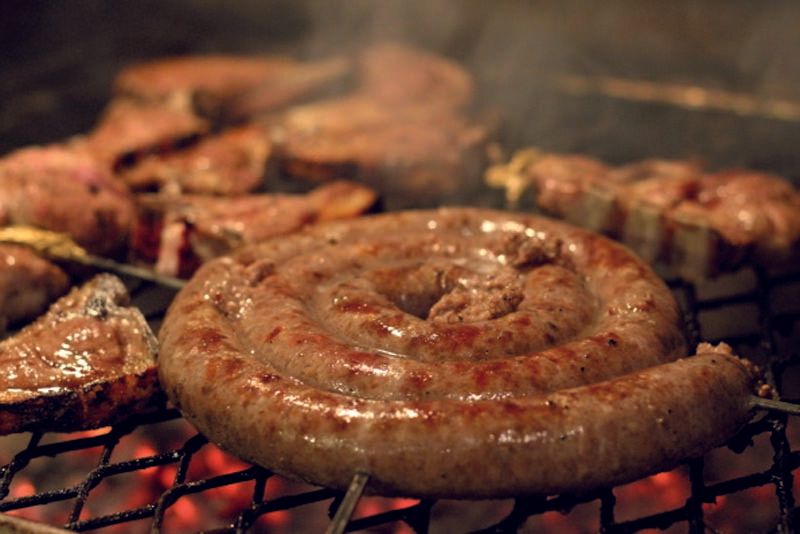Make the most of the season by following these simple guidelines
Jakes Conradie • September 23, 2020
The new season is a great reason to make and keep resolutions. Whether it’s eating right or cleaning out the garage, here are some tips for making and keeping resolutions.
Make a list
Check the list regularly
Reward yourself
Think positively
Lists are great ways to stay on track. Write down some big things you want to accomplish and some smaller things, too.
Check the list regularly
Don’t forget to check in and see how you’re doing. Just because you don’t achieve the big goals right away doesn’t mean you’re not making progress.
Reward yourself
When you succeed in achieving a goal, be it a big one or a small one, make sure to pat yourself on the back.
Think positively
Positive thinking is a major factor in success. So instead of mulling over things that didn’t go quite right, remind yourself of things that did.
LGBTQ Vacation is endorsed by https://www.gayvoyageur.com

Flights to and from South Africa from 1 October 2020 – it’s time to book a tour with LGBTQ Vacation!
Emirates has announced it will resume flights to Johannesburg (1 October), Cape Town (1 October), Durban (4 October) in South Africa; Harare in Zimbabwe (1 October); and Mauritius (3 October). The addition of the five points will expand the Emirates’ global network to 92 destinations, as the airline gradually resumes its operations while prioritising the safety of its customers, crew and the communities it serves around the world. Emirates’ African network will also now extend to 19 cities. Customers flying in and out of Emirates’ three South African gateways can safely connect to Dubai and to an array of onwards connections to Europe, the Far East, Middle East, West Asia and Australasia. Flight schedules for Emirates’ South African destinations will be available on emirates.com later this week. Emirates will operate to Harare with two weekly flights linked to its Lusaka service. The linked services will connect Zambia and Zimbabwe to key destinations across Europe, the Far East, the Americas, Australasia and West Asia with one convenient stop in Dubai. Tickets can be booked on emirates.com, the Emirates App, Emirates sales offices, via travel agents as well as online travel agents. Customers can stop over or travel to Dubai as the city has re-opened for international business and leisure visitors. Ensuring the safety of travellers, visitors, and the community, COVID-19 PCR tests are mandatory for all inbound and transit passengers arriving to Dubai (and the UAE), including UAE citizens, residents and tourists, irrespective of the country they are coming from. Flexibility and assurance: Emirates’ booking policies offer customers flexibility and confidence to plan their travel. Customers who purchase an Emirates ticket by 30 September 2020 for travel on or before 30 March 2021, can enjoy generous rebooking terms and options, if they have to change their travel plans due to unexpected flight or travel restrictions relating to COVID-19, or when they book a Flex or Flex plus fare. https://www.emirates.com/ae/english/help/covid-19/ticket-options/ COVID-19 PCR testing: Emirates customers who require a COVID-19 PCR test certificate prior to departure from Dubai, can avail of special rates at the American Hospital and their satellite clinics across Dubai by simply presenting their ticket or boarding pass. Home or office testing is also available, with results in 48 hours. https://www.emirates.com/za/english/help/covid-19/dubai-travel-requirements/residents/? Free, global cover for COVID-19 related costs: Customers can now travel with confidence, as Emirates has committed to cover COVID-19 related medical expenses, free of cost, should they be diagnosed with COVID-19 during their travel while they are away from home. This cover is immediately effective for customers flying on Emirates until 31 December 2020, and is valid for 31 days from the moment they fly the first sector of their journey. This means Emirates customers can continue to benefit from the added assurance of this cover, even if they travel onwards to another city after arriving at their Emirates destination. https://www.emirates.com/english/help/covid-19/free-covid-19-cover/ Health and safety: Emirates has implemented a comprehensive set of measures at every step of the customer journey to ensure the safety of its customers and employees on the ground and in the air, including the distribution of complimentary hygiene kits containing masks, gloves, hand sanitiser and antibacterial wipes to all customers. For more information on these measures and the services available on each flight, visit: https://www.emirates.com/za/english/help/covid-19/safety/? Tourist entry requirements: For more information on entry requirements for international visitors to Dubai visit: https://www.emirates.com/za/english/help/covid-19/dubai-travel-requirements/residents/? For tour bookings, go to: https://lgbtqvacation.dudaone.com/

When you visit South Africa we hope you are not here to eat exactly like you normally would at home. Eat and drink like a local and become a genuine traveler who is curious about the local cuisine of the country he is exploring. Most famous tradition: a proper braai. A South African barbeque, but it involves a proper fire, lots of meat like steaks, boerewors and chops. This is usually accompanied by many side dishes such as maize meal porridge (“pap” or “phuthu”) with tomato gravy, toasts made on the fire (braaibroodjies), salads, veggies etc. Some South Africans even renamed our national Heritage Day (24 September) to the official “braai day”. Do not forget biltong. Biltong is dried meat (similar to beef jerky), spiced with salt, pepper, coriander and various other flavours. Chilli bites is a popular variation. It can be made from beef, various types of game, ostrich or even fish. This needs to come along on your next safari style game drive. A related snack is droëwors (“dried sausage”), which also goes down well in our meat loving nation. Make friends over a potjie. This is a stew made in a rustic, 3 legged, cast iron pot (“potjie”) and slow cooked over a fire. Also called Potjiekos. Ingredients usually include a type of meat or fish with vegetables, potatoes and rice. A very popular event is to have festive potjiekos competitions for socializing or fundraising purposes. Feel at home with a bobotie. Bobotie is typical of Cape Malay cuisine, which is a flavourful blend of South African and Eastern cuisine, and made from mildly spiced mince (curry and turmeric) topped with a “custardy” layer of egg and milk. It often contains raisins and eaten with chutney, resulting in the characteristic taste, which is a unique combination of savoury spicy and sweet. A not-to-be-missed dish. Try a bunny chow. A popular meal in KwaZulu-Natal (especially Durban), where the local cuisine has more of an Indian influence thanks to the big Indian community. This fun dish consists of half a loaf of white bread which has been hollowed out and filled with curry mince. The bread serves as a “bowl”, a very practical way of transporting a curry lunch. The Western Cape version is called a Gatsby, and the Soweto version is called “AK‑47” or Kota. Sweet koeksisters for dessert. These extremely sweet delicacies are traditional Afrikaner treats. They are basically “braided” strips of dough which have been deep fried and dipped in syrup, which soaks into it to create a little sugar bomb. Watch out, they are irresistible and addictive. Craft beers have grown in popularity in recent years, with many small breweries exploring the market with great success. Taste some on our Panorama/Kruger , and Cape to Johannesburg Tours . African traditional brews also offer a very unique taste experience and are made of maize and sorghum, rather than barley and hops. Flavored gins are all the rage at the moment. Many local distilleries are producing their own gins and infusing them with indigenous ingredients such as fynbos or rooibos, giving them a unique South African flavour. Drink our famous export product. To enjoy a characteristic South African drink, have a few glasses of wine. South African wines are well-known internationally and have a long history in the Western Cape region. Our Cape Town Tours will expose you to wine tasting at some of the many scenic wine estates in the Cape Town area. The history of brandy dates back about 350 years when the first brandies were distilled by the Dutch on ships in the Cape. There are highly sophisticated brandies produced, which are made in the French cognac style and regularly win international awards. We recommend you have a taste. These are just a few examples of inspiration for your culinary adventure in South Africa, there are many more local foods and specialities to discover. South Africa is a food loving nation and has a flourishing gastronomic culture to be enjoyed. Hurry and book a tour now, or the wine might get sold out!
